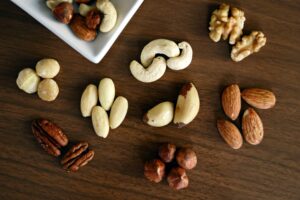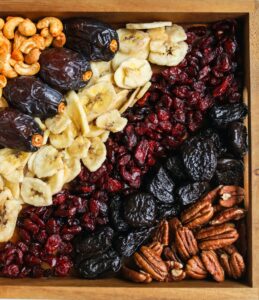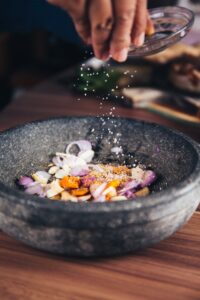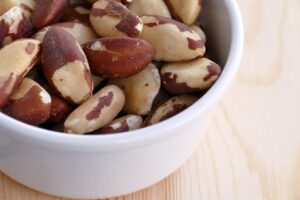
The term “paleo nutritionist” is not widely recognized or established in mainstream nutrition or academic circles. However, it could potentially refer to someone specializing in a dietary approach inspired by the Paleolithic era, commonly known as the Paleo diet.
The Paleo diet, or Paleolithic diet, is based on the premise of eating foods that were available to our ancestors during the Paleolithic era, such as lean meats, fish, fruits, vegetables, nuts, and seeds while avoiding processed foods, grains, legumes, and dairy.
If someone refers to themselves as a “Paleo Nutritionist,” it likely means they are promoting or practicing a nutritional approach based on the principles of the Paleo diet. Remember that the term might not have widespread recognition, and individuals using it may have varying interpretations of what it entails. It’s always a good idea to seek information from qualified nutrition professionals and consult with healthcare professionals before making significant changes to your diet.
Paleo Nutrition And Fitness
Pairing the Paleo diet with fitness and weightlifting brings about a fusion of ancient wisdom and modern science. The Paleo approach, grounded in our ancestors’ diet, aligns seamlessly with the principles of muscle development and overall fitness.
The Paleo diet emphasizes whole foods rich in nutrients, providing optimal fuel for workouts. Lean meats, nuts, and seeds offer essential proteins for muscle repair, while fruits and vegetables supply vitamins and minerals crucial for sustained energy. Weightlifting enthusiasts often seek ample protein intake. The Paleo diet naturally supports this with its focus on lean meats and fish, promoting muscle growth and recovery.
The combination of Paleo nutrition and weightlifting stimulates metabolism. The high-protein, low-carb nature of the diet, coupled with the calorie-burning effects of weightlifting, creates an effective synergy for weight management. Paleo’s anti-inflammatory properties contribute to quicker post-workout recovery. This is particularly beneficial for weightlifters, enhancing their ability to consistently engage in challenging training sessions.
By embracing the Paleo diet alongside fitness and weightlifting, individuals can tap into a holistic approach that not only enhances physical performance but also fosters long-term well-being.
Paleo Nutrtisionist For Weight Loss

Paleo nutrition serves as a natural ally in the journey toward sustainable weight loss. Centered on whole, unprocessed foods, the Paleo diet aligns with the body’s evolutionary design, promoting weight management through mindful eating.
The emphasis on lean proteins, vegetables, fruits, and healthy fats not only nurtures satiety but also regulates blood sugar levels, curbing cravings and overeating. By excluding processed sugars and refined carbohydrates, the Paleo diet encourages the body to burn stored fat for energy, facilitating effective weight loss. Individuals will hire a paleo nutritionist to give advice on their weight loss journey.
Moreover, the nutrient density of Paleo-approved foods ensures that the body receives essential vitamins and minerals. This supports overall health during the weight loss process. As a lifestyle approach rather than a quick fix, Paleo nutrition provides a sustainable and nourishing path towards achieving and maintaining a healthy weight.
Paleo Diet Health Benefits
While individual experiences with the Paleo diet vary, several case studies from diverse sources highlight its potential health benefits. One notable study published in the “European Journal of Clinical Nutrition” examined the impact of a Paleolithic diet on cardiovascular risk factors. Participants experienced significant reductions in blood pressure, cholesterol levels, and improved insulin sensitivity, pointing towards cardiovascular health improvements.
In a separate case study conducted by researchers at the University of California, individuals with type 2 diabetes adhering to a Paleo diet demonstrated improved blood sugar control. The study reported decreased HbA1c levels, suggesting the potential of the Paleo diet as a therapeutic approach for managing diabetes.
These case studies align with numerous anecdotal reports of individuals experiencing positive outcomes. Many attest to enhanced energy levels, better digestion, and weight loss. Notably, some individuals with autoimmune conditions report alleviation of symptoms, attributing it to the anti-inflammatory nature of the Paleo diet.
However, it’s crucial to note that individual responses to the Paleo diet can vary, and long-term studies are limited. While case studies offer valuable insights, more extensive research is needed to establish the broader implications of the Paleo diet on various health parameters. As with any dietary approach, consulting with healthcare professionals and personalized assessments remain essential to ensure the diet aligns with individual health needs.
Paleo Nutrition And Longevity
A notable study published in the “American Journal of Clinical Nutrition” explored the impact of a Paleolithic-inspired diet on cardiovascular risk factors. Participants showed improvements in blood pressure, cholesterol levels, and glucose metabolism—key factors linked to heart health and overall longevity. These findings suggest that adhering to a Paleo diet may contribute to a healthier cardiovascular profile, potentially extending life expectancy.
In another study conducted by researchers at Umeå University in Sweden, individuals following a Paleolithic diet exhibited lower levels of markers associated with chronic inflammation. Chronic inflammation is implicated in various age-related diseases, and its reduction may have implications for overall health and longevity.
While these studies offer intriguing insights, it’s essential to consider the broader context of lifestyle factors. The Paleo diet is often accompanied by an emphasis on whole, nutrient-dense foods. This also comes with a reduction in processed and inflammatory foods. These are elements that contribute to overall well-being.
Individual anecdotes further support the idea of increased lifespan with the Paleo diet. Many followers report sustained energy levels, improved cognitive function, and enhanced vitality. However, it’s crucial to approach these findings with cautious optimism, recognizing that more extensive, long-term studies are needed to establish definitive links between the Paleo diet and increased lifespan.
As with any dietary approach, individual considerations, regular health check-ups, and a holistic lifestyle approach play crucial roles in promoting overall longevity.
How To Implement A Diet Like A Paleo Nutrionist
Embracing a Paleo diet involves reviving the eating habits of our ancestors, focusing on whole, unprocessed foods. Begin by prioritizing lean meats, fish, and poultry—rich sources of protein that fuel your body’s functions. Load up on an array of colorful vegetables, as they provide essential vitamins and minerals. Opt for healthy fats like avocados, nuts, and olive oil to support brain function and overall well-being.
Eliminate processed foods and refined sugars, as they disrupt your body’s natural balance. Embrace natural sweeteners like honey or maple syrup in moderation. Ditch grains and legumes, which are not part of the ancestral menu. Choose nutrient-dense alternatives like sweet potatoes or cauliflower.
Prioritize hydration with water, herbal teas, and coconut water while avoiding sugary beverages. Incorporate nuts and seeds for additional nutritional boosts. Experiment with diverse spices and herbs to enhance flavors without relying on processed sauces. Implement nuts and seeds like sunflower seeds for added boost of nutrition.
Remember, individual needs vary, so listen to your body and adjust accordingly. Regular exercise and sufficient sleep complement the Paleo lifestyle. Seek guidance from a qualified nutritionist to tailor the plan to your specific health goals. Ultimately, adopting a Paleo approach involves a commitment to nourishing your body with whole, unadulterated foods for sustained vitality.



